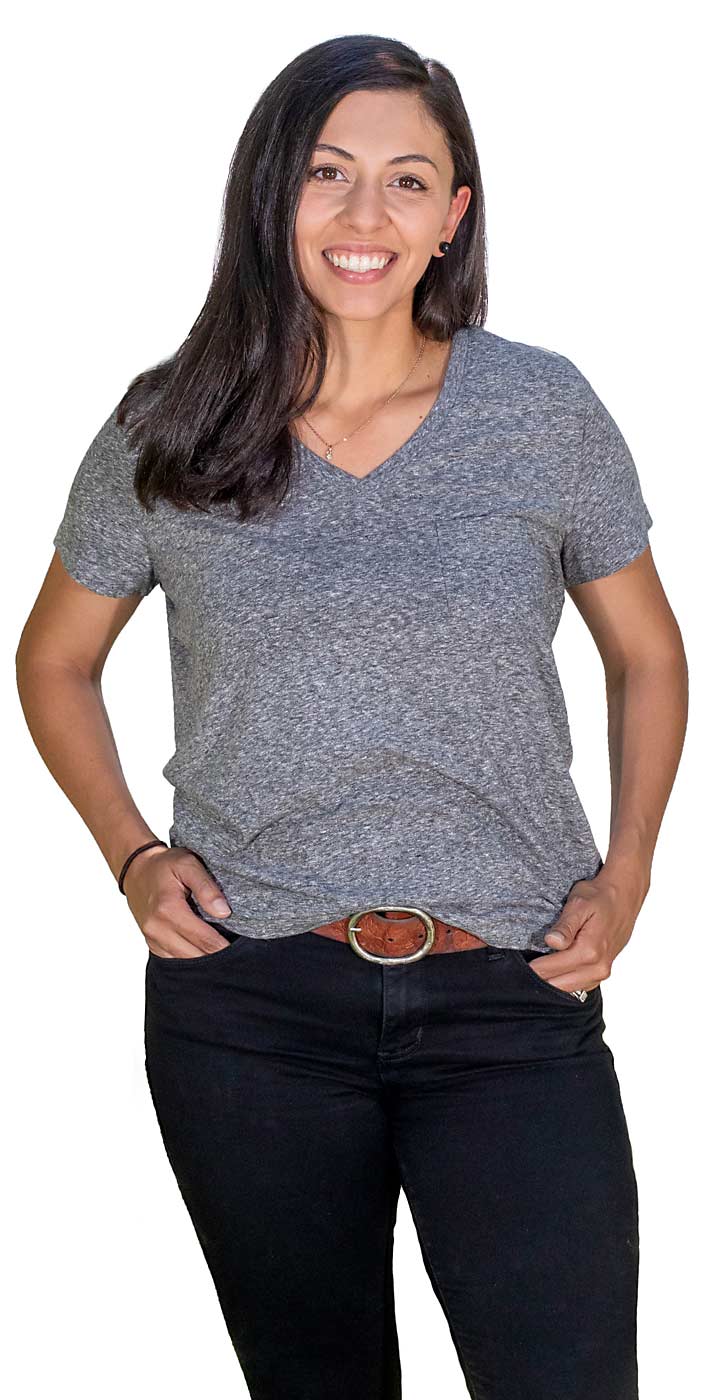family background / Crystal is a second-generation farmer who grew up in the Yakima Valley and originally pursued teaching before joining her brother, Tony Mendoza, with Haak Administrative Services. She is married to Jesus Aguilar and is the daughter of Trinidad and Elieser Mendoza.
age/32
grower/Zillah, Washington
crops/Apples, cherries and pears
business/Haak Administrative Services
How did you get your start?
My dad was a foreman and some of my earliest memories were driving around with him on the four-wheeler checking on the pear, cherry and apple blocks. Now I work on the farm with my brother, who’s a foreman, and I do several things —from food safety, payroll, office administration, L&I and Global Gap audits.
Both of my parents were farmers and I remember when I was little during cherry harvest waking up at 4 o’clock in the morning thinking, “I don’t want to do this for the rest of my life.”
Even though I felt that at a young age, there were fun times as well, because of all the different types of work for me to experience.
How did you return to the farm?
After high school, I went to university to become an elementary teacher and my husband started working on the farm with my brother.
When I would visit my husband during lunch, I noticed my brother was stressed out with L&I stuff or he’d be up until midnight working on payroll. When I offered my help, I started to learn other parts of the business, like processing new hires or chemical record keeping for audits.
I remember he asked me to do walk-arounds, and I didn’t know what a walk-around was, but I learned how important it is to check that the orchard looks good and is safe for everyone. Everything I learned along the way drove me toward the ag industry as a career.
Now, when I see the crews out doing things like pruning, I ask them to teach me, because I want to know what everyone does. Learning about everything on the farm is so much fun.
What challenges are you taking on?
When I was starting out, I attended G.S. Long trainings, and one of the difficult things about this job is retaining all of the information and then bringing it into the orchard. Talking with all of the supervisors and crew leaders about the new laws that we must implement is the hardest part.
If we can get those lessons out into the orchard, then it’s better for the well-being of the employees. Another challenge is reducing the amount of paperwork. I remember when we had papers and papers, and so much paperwork. About two years ago, we were introduced to PickTrace, which is like a cell phone-type device that crew bosses use to digitally scan in the work being done instead of using paper.
With this technology, we’ve also reduced the hours employees have to spend filing harvest reports. Instead of crew bosses calculating the harvest for two hours at the end of each day, those figures are done live in the software. We can see how many bins have been picked, how much money we spent on that block, how much we spent on that particular variety — and every bit of data we may want is live.
Are there any other current challenges?
With Global Gap and L&I, there are a lot of rules and regulations that may be inconsistent between the two. One issue is when we are figuring out what we need to do to satisfy Global Gap, we may not need to do it for L&I.
These different rules can create training problems. Having the managers on board with up-to-date training is very helpful, however there’s so much more to do to make the system better.
What would you tell younger growers?
I would tell the next generation to learn more about agriculture, because it’s not just about working long hours in the sun. There are so many different things that go into making a farm work.
I think back to when I used to work in a cubicle and how I’d never want to go back to that. I come into work now, not knowing what’s going to happen next. I’m not doing the same thing, it’s different and I really enjoy it.
–TJ Mullinax







Leave A Comment